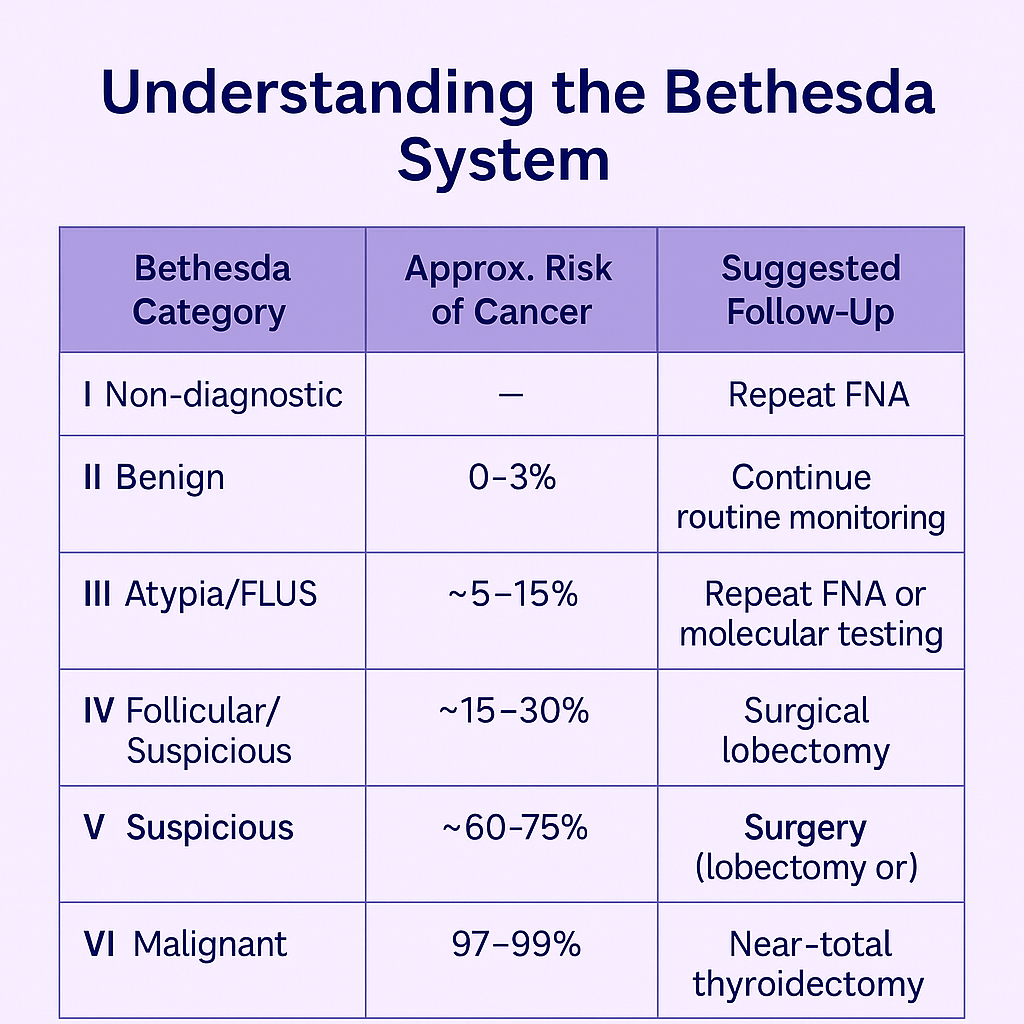Demystifying Thyroid Biopsies & Scans: What to Expect
If you’ve been told you need further testing—like a biopsy or scan—it’s completely normal to feel worried. Understanding what each procedure involves can help you feel more prepared and empowered.
Thyroid Ultrasound: Your First Step
What it is: A painless imaging test using high-frequency sound waves to view the thyroid gland and nodules.
Why it matters: Ultrasound helps determine nodule size, whether it’s solid or fluid-filled, and displays suspicious features like microcalcifications or irregular margins.
What to expect: A cool gel is applied to your neck while a handheld wand scans around—no preparation or discomfort!
Fine‑Needle Aspiration (FNA) Biopsy
What it is: A minimally invasive test using a very thin needle (usually 23‑27 gauge) to collect cells from a thyroid nodule under ultrasound guidance.
Accuracy: FNA has a sensitivity of around 72% and specificity close to 99%—very reliable, especially when guided by ultrasound.
Procedure: Lasts about 20–30 minutes. After cleaning and numbing the neck, the provider inserts the needle, may take multiple samples, then applies gentle pressure afterward.
Risks & discomfort: You may feel pressure or mild bruising; more serious complications are extremely rare.
Results are typically available in a few days to two weeks. FNA results fall into Bethesda System categories I–VI, each with an associated risk and recommended next step.
Radioactive Iodine Scans
Purpose: Measures how thyroid nodules absorb iodine, helping differentiate “hot” (overactive) nodules—rarely cancerous—from “cold” ones.
Process: You swallow or receive an injection of a small dose of radioactive iodine (usually I‑123). A special camera maps activity in your thyroid—with usually no hospitalization required.
Pitfalls: Pregnant or potentially pregnant individuals should avoid it. Hot nodules typically don’t need biopsy.
When Additional Imaging Is Needed
CT, MRI, or PET scans: Used if there's concern for cancer spread or if nodules appear invasive. Note: CT contrast containing iodine can interfere with later radioactive iodine treatments, so avoid contrast if future treatment is planned.
What You Can Expect: Preparation & Aftercare
Before: FNA requires minimal prep. Avoid blood-thinning meds if advised. No sedation generally needed.
During: Stay still, breathe normally. You may feel mild pressure but it shouldn’t be painful.
After: Expect slight bruising or soreness for a day or two. Resume normal activities soon.
Questions You Deserve to Ask
“Why is this test recommended for me?”
“How accurate is this procedure for my situation?”
“What will my results mean—and what are the next steps?”
“What if results are indeterminate or unclear?”
“Who will perform the procedure, and what’s their experience?”
Final Thoughts
These tests—ultrasounds, FNA biopsies, and thyroid scans—are key steps to getting answers and starting a clear plan. While they can feel intimidating, most people go through them with minimal discomfort and refreshingly quick results.
You are not just a nodule—you are a person deserving clarity, care, and compassion. Reach out with your questions, lean on communities, and trust that understanding each step helps you advocate for yourself.
